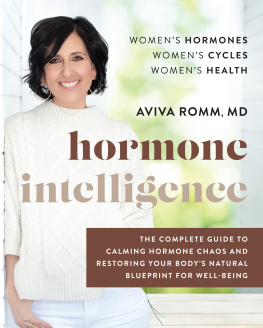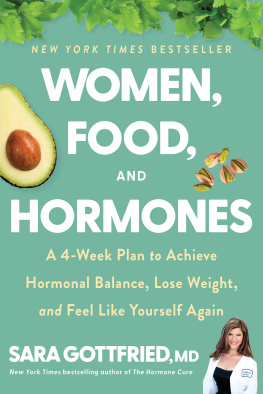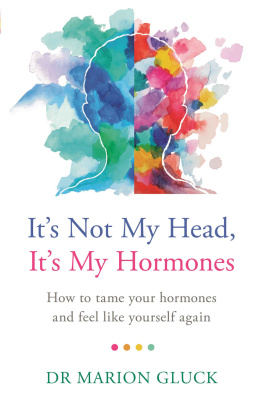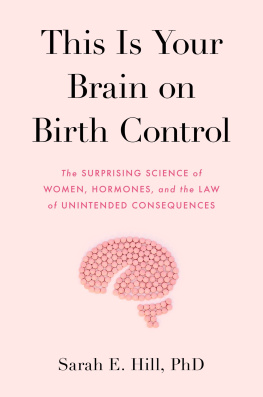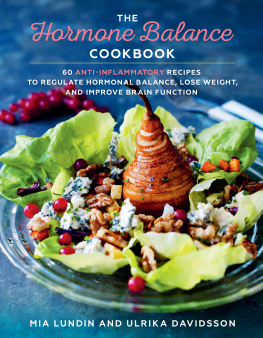Copyright 2018 by Martie Haselton
Cover design by Lauren Harms
Author photograph by Gregory Beylerian
Cover copyright 2018 by Hachette Book Group, Inc.
Hachette Book Group supports the right to free expression and the value of copyright. The purpose of copyright is to encourage writers and artists to produce the creative works that enrich our culture.
The scanning, uploading, and distribution of this book without permission is a theft of the authors intellectual property. If you would like permission to use material from the book (other than for review purposes), please contact permissions@hbgusa.com.
Thank you for your support of the authors rights.
Little, Brown and Company
Hachette Book Group
1290 Avenue of the Americas, New York, NY 10104
littlebrown.com
twitter.com/littlebrownandcompany
facebook.com/littlebrownandcompany
First ebook edition: February 2018
Little, Brown and Company is a division of Hachette Book Group, Inc.
The Little, Brown name and logo are trademarks of Hachette Book Group, Inc.
The publisher is not responsible for websites (or their content) that are not owned by the publisher.
The Hachette Speakers Bureau provides a wide range of authors for speaking events.
To find out more, go to hachettespeakersbureau.com or call (866) 376-6591.
Images on , reprinted from Trends in Ecology and Evolution, volume 25, issue 3, Alexandra Alvergne and Virpi Lummaa, Does the Contraceptive Pill Alter Mate Choice in Humans?, 17179, copyright 2010 with permission from Elsevier.
ISBN 978-0-316-36919-0
E3-20180104-JV-PC
To my father, Mark Barden Haselton. I miss you.
And to my family, Jackie and Rick Seib, Pamela Haselton, Jodie, Tim, Taylor, and Billie Niznik, and most of all to my children, Georgia and Lachlan
I HAVE HAD THE great fortune of finding a scientists dream: a fascinating, socially relevant topic that was underexplored but rich in the empirical goods it delivered, once I started doing research.
At the time I began my work on womens hormone cycles, the broad consensus in science was that humans were vastly different from other species and that hormone cycles didnt have much to do with patterns of human sexual behavior. Everyone thought that humans had been emancipated from hormonal control, whereas our nonhuman cousins were still seized by it. Part of that thinking was based on a genuine recognition that humans had unusual attributes, including this one: Humans will have sex at nearly any timewhen at peak fertility near ovulation, but also at other times in the cycle, and even when conception is impossible, for example, when a woman is pregnant, newly postpartum and breastfeeding, and in the postreproductive years following menopause. This sort of extended sexuality runs in stark contrast to patterns in other mammals.
I certainly recognized that women were different. Were not automatons who experience an estrogen surge and then follow a behavioral urgeas in having sex (or competing with a rival). But my training as an evolutionary theorist led me to consider that hormones might affect women too, guiding their sexual and social decisions. Hormones control reproduction, the powerful engine of natural selection. It therefore seemed astonishingly unlikely that hormones would not guide our behavior in some way.
The first studies from my lab found that women at peak fertility seemed to place a premium on sexiness in male partners. They also felt more attractive and wanted to go out to clubs and parties where they might meet men. They even showed up at the lab wearing dressier and sometimes more revealing clothing. It appeared that ovulation might be triggering mate shopping.
Although I initially viewed this research as a side project, these findings were too tantalizing in their implications for me to pass upI had to pursue them further. What other under-the-radar secrets of female desire might I discover if I kept looking? And so I did, with the help of dozens of students and many cherished colleagues.
I am writing this book to share the story of our fascinating findings. It turns out that.
I am also writing this book as a call to action for more information on our female brains and bodies. In spite of all that we do know, research was stunted for decades by the notion that men could be considered the default sex for biomedical information (If it worked for men, why wouldnt it work for women too?). Women, the thinking went, were just too messy with all those hormone cycles. Why bother?
I believe we know far too little about womens hormones and their behavior, and we must know more so that we can make the best decisions at every phase of life. What are the consequences of suppressing our hormone cyclesor even eliminating menstrual periods altogetherby using the pill? Whats the truth about getting pregnant as we move into our third, fourth, and even fifth decades? Can we find a magic bullet for female desire, the way Viagra helped men with their bedroom troubles? Should we consider taking hormone supplements later in life? I address all these questions in the book, but we still do not have complete answers, to the detriment of both women and men.
I also want to offer a different perspective on women and hormones. Outside of academic circles, for decades women have been derided for being hormonaleven.
Theres
Some believe that any biological explanation for a womans behavior will keep her from achieving. The thinking is that differences between women and men, if they have any hint of a biological foundation, will doom women to girlish stereotypes, confine them to a maternal role, and smash them up against the glass ceiling if they try to achieve professionally. The implication for researchers is that we should keep information about womens hormones and their behavior on the down low. Its best not to stir up these stereotypes.
I think the opposite is true. We do not help women by suppressing information or failing to do the research that could inform the important hormonal questions we need answers to. And what weve learned about women and hormones isin my viewempowering. Its not a simple story about going hormonal on those last few days of the cycle and losing our rational faculties. Its
When I started my career in science I thought I could never allow politics to creep into my work. I aspired to be the objective scientist. Just the facts, please! But politics, or at least controversy, seemed to follow me wherever I went. The application of evolutionary thinking to human psychology was (and is) controversial. Any biological explanation for behavior is welcomed with unease in social science, a fact that has come back to bite me many times! But my results seemed to provide powerful evidence of the footprints of evolution on the human social mind. So the findings were newsworthy not only because they were new and sexy but also because of their deeper implications for understanding the forces that have shaped our minds and behaviors. The work helped to put me on the map as a scientist.
Ive fought my battles. I would publish research findings after doing careful work, taking the long road to try to get the best data rather than the quick and easy route. Pushback would come in the form of published critiques of the scientific methods we used in my research lab and insinuations that the results were really just due to iffy statistical practices that produce the illusion of findings. (In fact, when we looked at the evidence pertinent to those claims, it flatly contradicted what the critics were saying. I am still waiting for the e-mail that says, Oops, our bad!) I have been shouted down at conferences and have gotten some jaw-dropping e-mails. I will not say that I have a lock on all of the scientific factsI have a healthy dose of skepticism about the data from my lab and the work of others. But I will say that some of the conflict was way over the topseemingly worthy of a Shakespearean drama (had the Bard set one of his plays at a large American research university or two).


